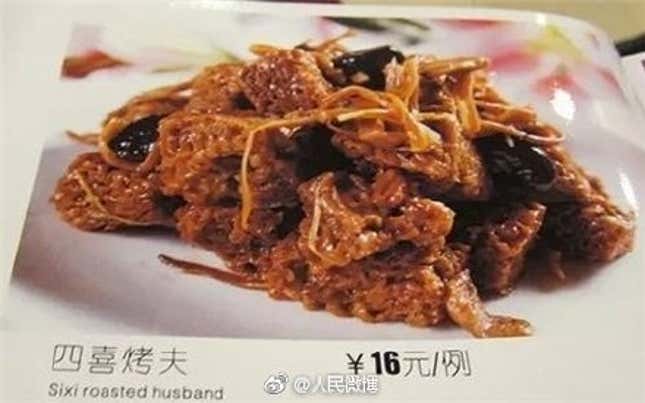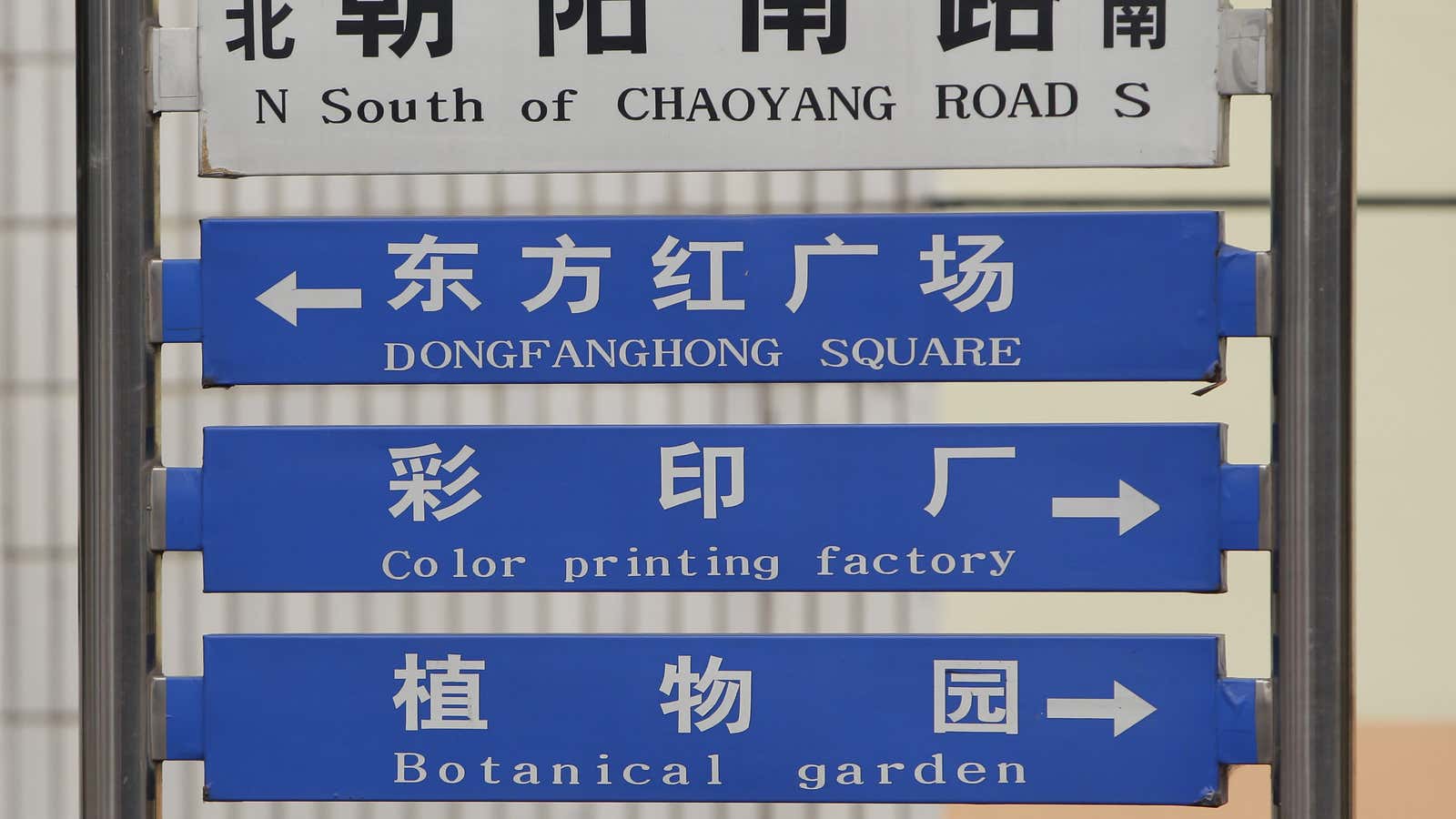In China, English translations on eatery menus or road signs are often so wrong that visitors burst out laughing. But it’s no laughing matter to authorities in Beijing.
This week a government ministry—the eloquently named General Administration of Quality Supervision, Inspection and Quarantine—issued guidelines for using English correctly in public places. The rules apply to about a dozen industries, including tourism, entertainment, transportation, and food and beverage.
According to a ministry statement (link in Chinese), the guidelines will improve the nation’s soft power and international image. That, in turn, will help with an infrastructure initiative China is promoting to link itself (and its goods) to Europe, Africa, and the Middle East. It plans to spend about $5 trillion on construction projects (roads, rails, ports) in the 60-plus countries touched by the initiative, known in English as “One Belt, One Road,” or OBOR.
In April, the state-owned Beijing Youth Daily searched a Beijing theme park (link in Chinese) for English mistakes on signs. It found many. One sign proclaimed, ”Forest protection such as homebody,” no doubt puzzling foreign visitors. A correct translation would be, “Protect the forest as your own home.”
Another read “Ramp road slippery” instead of “The road is slippery,” though it probably succeeded in warning folks to watch their footing.

On some restaurant menus, steamed chicken with chili sauce is translated as “Characteristics of mouth-watering.” That gaffe isn’t too bad, as diners might still order a dish described as tasty.
Not all the new rules will help. One states that tofu should be spelled “doufu” because, apparently, that spelling is used more widely by the outside world. For the record, “tofu” has an entry in the Merriam-Webster dictionary, and “doufu” does not.
But the need for guidelines is clear. Some English mistakes in China are downright alarming. According to the People’s Daily, roasted wheat gluten is sometimes translated on menus as “roasted husband” (link in Chinese).
The new rules take effect in December. In the meantime, don’t be alarmed if you see “Many bandits” on the menu: It’s probably just pork liver.
